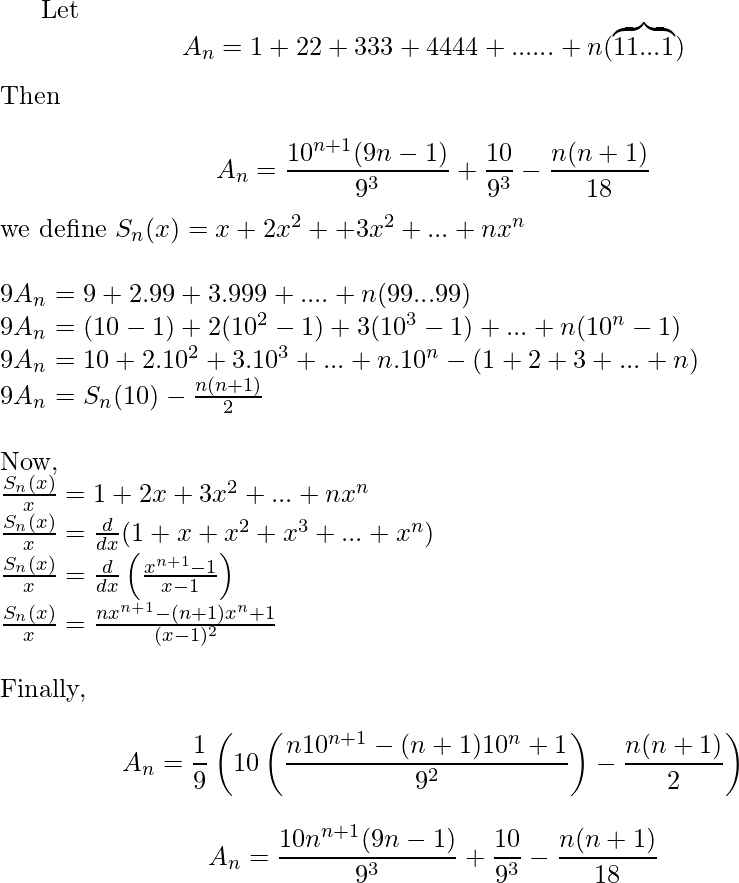Find sum of the series 1+22+333+4444+…… upto n terms
Last Updated :
25 May, 2022
Given a number N. The task is to find the sum of the below series up to N-th term:
1 + 22 + 333 + 4444 + …up to n terms
Examples:
Input: N = 3
Output: 356
Input: N = 10
Output: 12208504795
Approach:

Below is the implementation of the above approach:
C++
#include <iostream>
#include <math.h>
using namespace std;
int findSum(int n)
{
return (pow(10, n + 1) * (9 * n - 1) + 10) /
pow(9, 3) - n * (n + 1) / 18;
}
int main()
{
int n = 3;
cout << findSum(n);
return 0;
}
|
Java
import java.util.*;
class solution
{
static int calculateSum(int n)
{
return ((int)Math.pow(10, n + 1) * (9 * n - 1) + 10) /
(int)Math.pow(9, 3) - n * (n + 1) / 18;
}
public static void main(String ar[])
{
int n=3;
System.out.println("Sum= "+ calculateSum(n));
}
}
|
Python 3
def solve_sum(n):
return (pow(10, n + 1)*(9 * n - 1)+10)/pow(9, 3)-n*(n + 1)/18
n = 3
print(int(solve_sum(n)))
|
C#
using System;
class solution
{
static int calculateSum(int n)
{
return ((int)Math.Pow(10, n + 1) * (9 * n - 1) + 10) /
(int)Math.Pow(9, 3) - n * (n + 1) / 18;
}
public static void Main()
{
int n=3;
Console.WriteLine("Sum= "+ calculateSum(n));
}
}
|
PHP
<?php
function findSum($n)
{
return (pow(10, $n + 1) *
(9 * $n - 1) + 10) /
pow(9, 3) - $n * ($n + 1) / 18;
}
$n = 3;
echo findSum($n);
?>
|
Javascript
<script>
function calculateSum( n)
{
return (parseInt(Math.pow(10, n + 1)) * (9 * n - 1) + 10) /
parseInt(Math.pow(9, 3)) - n * (n + 1) / 18;
}
let n = 3;
document.write("Sum= " + calculateSum(n));
</script>
|
Time Complexity: O(logn), where n represents the given integer, as we have used pow function.
Auxiliary Space: O(1), no extra space is required, so it is a constant.
Like Article
Suggest improvement
Share your thoughts in the comments
Please Login to comment...